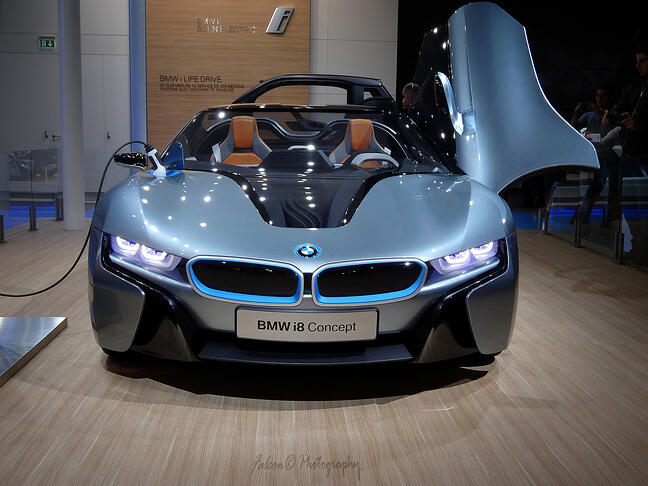Being intentional about product choices is becoming increasingly recognized as a winning strategy for product management. The basic idea is that by relentlessly focusing on the core of your product, you can create a more lovable product that is easy for your customers to use. Companies like Apple and Basecamp extoll the virtues of rejecting most customer-requested features to prevent dilution of their offerings.

But a focus on curating products doesn't make product management easy.
Let's take BMW as an example. BMW bills itself as "The Ultimate Driving Machine," and has amassed a considerable history of producing vehicles that people love. By all measures, BMW is a prestige brand with a reputation for delivering high-quality products.
But even the designers at BMW have to make product choices that result in trade-offs and customer feature requests that go unanswered.
But before we get to that, let's talk about cup holders for a minute.
Americans drive a lot, and many of us spend a lot of our time in our cars. We take road trips to the beach and we shuttle our kids to football practice. Quite a few of us have really long driving commutes.
So Americans often drink in their cars. Whether coffee and a scone from the Starbucks on the way to work or the soda that comes with a drive-through taco combo, Americans bring their drinks in their cars with their food. Who wants to drive to work with no coffee? This is a country where one can buy a 128oz cup of soda, for crying out loud.
What does this have to do with BMW? BMW has had an official subsidiary in the USA importing vehicles into North America for nearly 40 years. BMW has been manufacturing cars in America for 20 years. Between these and their extensive dealer presence, they have quite a bit of experience in the American market. That is to say, the smart folks at BMW are keenly aware of the American love of drinking in their cars.
And yet, BMWs sold in America have been notorious for the poor quality of their cup holders. Their cupholders are ridiculous and do not fit at all with the ways their vehicles are used. And it's not just me saying that, this is what Ludwig Willisch, President and CEO of BMW North America had to say on the subject in a Los Angeles Times interview:
Cup holders have been a huge issue in the company. This has been a 20-year debate within the company. This is really about taking into account customer needs, and obviously at a certain point in time the engineers did not believe that this was an issue.
20 years! They have been debating cup holders for two decades!
And this is presumably a common improvement requested by a large portion of their customer base in one of their largest markets. What's happening here?
It seems drinking in The Ultimate Driving Machine is at odds with the soul of the product. Perhaps the designers at BMW don't want drivers gulping down coffee while they drive the BMW Experience any more than a talented director wants her movie half-watched from a doctor's waiting area. In each case, the creators object to their customers not being able to access the full promise of their creations.
The results speak for themselves: BMW is highly successful, and their cars remain in high demand. Their relentless focus means they can spend their energy working on other parts of their cars where they can add more value while remaining honest to their brand's promise (which does not include cup holders). Their core customers will forgive them for crappy cup holders, but not for poor handling or acceleration.
The BMW promise is to make The Ultimate Driving Machine, and steering is a core part of that promise. Unfortunately for Americans, cup holders are not obviously a part of that promise.
Effective product focus requires a complete understanding of the product's entire context: existing customers, prospective customers, the competitive landscape, production costs, market positioning, and more. Even beyond the more quantifiable aspects, effective product focus needs an understanding of the soul of the product.
A product manager can view all of these aspects as the promise a product makes to its users. So instead of randomly saying a thousand "no's" for every "yes," she can start by asking what promise a product makes to its users. Phrased that way, it becomes easier (although still not easy) to decide what features make sense.
At ProjectLocker, we know that the core the promise we make to our customers is the safety, reliability, and uptime of our services. We'll often reject improvements if we think that one of these core aspects of ProjectLocker will be compromised. After 10+ years in business, we still earn your trust one day at a time by keeping your data safe and available, and we know that's the main promise you expect us to keep.
What about your product? What are the core promises your product (or service) makes?
Image used under Creative Commons license from Falcon® Photography (via Flickr).


 Subscribe via RSS
Subscribe via RSS
